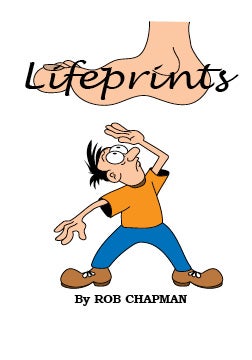Politics And The Kobayashi Maru
Published 3:48 pm Thursday, March 3, 2011
Given our propensity to really talk things out in comparison to how some others negotiate around the world, the standoff in Wisconsin between a handful of state legislators wanting things one way and an opposing party's governor wanting them another will probably be settled by the time you read this column.
Still, it is a rather interesting philosophical study.
As negotiations go, this is real hardball. Without one more legislator physically on the job, the governor's party (which controls the legislature) can't pass sweeping changes-if vehemently opposed by union workers-that would take away some union negotiating rights and cut into their financial livelihood that would arguably help a state in dire financial straights.
It could depend on who one's talking to whether the cuts are too much or unfair, or a needed step to fiscal responsibility.
On TV, citizen opponents packing that state's capital, though peaceable, look more like what we're seeing half way around the world. Still, one side has the legislative votes (if they can get a quorum) to pass those sweeping changes they see as needed. On the other side of the legislative aisle a handful of holdouts have skipped the state to some undisclosed hotel holding out for some negotiating ground effectively creating a stalemate.
Is this how Wisconsin founding fathers drew representative democracy up?
There is the theory, of course, which holds to the highest of human ideals, but theory doesn't always translate into how things work in practice.
In this respect, it's easy to understand why lawyers drawing up any sort of contract try to think of any possible loophole before anyone signs on a dotted line. If there's an end run outside of the designed play down the sideline for a score, someone will find it.
The question is whether a minority of legislators should be able to hold out against a majority when the minority, if any of them should show up to argue their cause in a normal legislative process, would lose. Though not new (although certainly in great focus), it's a political version of stall-ball, a version of gamesmanship played on multiple levels of politics.
Still, it's food for great philosophical discussion-reminiscent of what Star Trek's fictional Captain Kirk did while at Star Fleet Academy in the famous Kobayashi Maru. For those unfamiliar with the tale, the Kobayashi Maru is a leadership test where a cadet's faces a no-win situation.
Kirk fails the test, but the soon-to-be captain hates to lose. So he changes the game for a subsequent attempt, making it possible to succeed. The move, we are told in the Wrath of Kahn film, merits him a commendation from the Academy for original thinking. In the Star Trek remake (the last film), he is brought before superiors to answer for his actions.
So which is it?
Should legislators on the potential losing end of a vote receive a commendation for their creative outside-of-the-box thinking for doing what (one hopes) they believe to be right?
Or should they face the consequences for not playing by the spirit of the rules, where the majority in a representative democracy is supposed to prevail?
Perhaps it depends on which side of the argument one stands.
Once the end credits begin to roll, perhaps only time, and possibly an opportunity for the electorate to speak, may give the ultimate answer on whether the legislative holdouts will live long politically and prosper.






